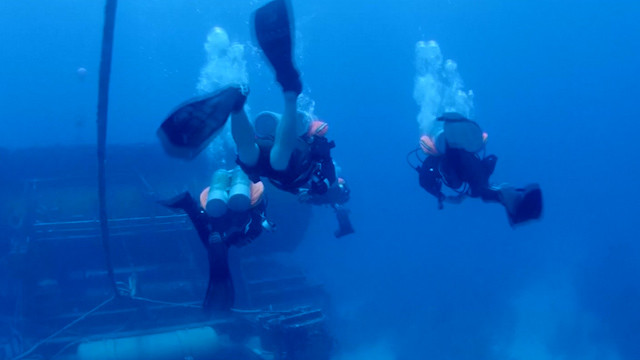French aquanaut Fabien Cousteau unveils futuristic design of largest underwater research facility
Installation of the world's largest underwater international "space station" may soon be underway.
A mouth-dropping design concept for the largest underwater research facility was laid bare to the public yesterday by renowned aquanaut Fabien Cousteau and industrial designer Yves Béhar. The underwater space station and habitat called Proteus is the product of Cousteau and Béhar's visions of building a high tech aquatic facility. Their dream was to build a home base for scientists and researchers from around the globe who are involved in the exploration and the study of oceans as well as marine life.
In an exclusive feature tie-up with CNN, the French aquanaut and Swiss designer revealed their design. The modular lab structure will span 4,000 square feet beneath an ocean depth of sixty feet in the coastal waters of Curaçao. It boasts of a 2-story circular design framework grounded to the ocean floor and supported by stilts. Powered mainly by solar, wind, and ocean thermal energy conversion, Proteus will also be the first underwater structure to have a self-sustaining greenhouse that will allow its long term occupants to grow food. The awe-inspiring structure features prominent pods that house the laboratories, personnel quarters, guest chambers, medical bays as well as a video production facility. Divers exploring the ocean floor can also enjoy its moon pool access.
Quite similar to the International Space Station, Cousteau and Béhar envisioned the Proteus to be the central hub of all scientists, government agencies and research explorers looking to collaborate "un-bordered" efforts to resolve climate change, discover new species of marine life and maybe even pave the way for breakthroughs in medicine.

Cousteau passionately believes "ocean exploration is 1,000 times more important than space exploration. It's our life support system. It is the very reason why we exist in the first place."
According to Cousteau, the projected timeline for the completion of Proteus will be about three years. As it is, the current pandemic has already caused the project a significant delay in its installation.
Known for following the footsteps of his grandfather, explorer and scientist Jacques Cousteau, Fabien points out how space exploration has seen more funding and attention compared to aquatic quests and research. He expresses his hopes that Proteus could one day provide an indispensable contribution to underwater research where a global network of aquatic facilities can be utilised to help in plotting tsunamis and hurricanes.
Today, only one 400-square-foot underwater habitat exists off the coast of the Florida Keys, the Aquarius. It was designed and built in 1986 and originally owned by the National Oceanic and Atmospheric Administration (NOAA). After losing its funding, NOAA had no choice but to abandon the facility. The Florida International University stepped in to save the habitat in 2013 and has since been home to teams of aquanauts.
© Copyright IBTimes 2025. All rights reserved.





















